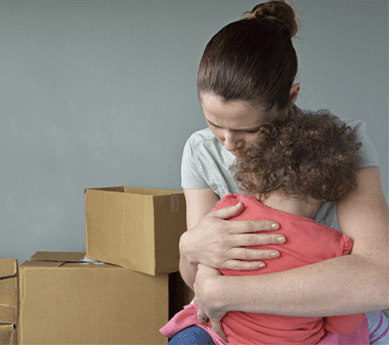A summary of the list of recommendations on the implementation of the OBBBA in Colorado regarding public benefits systems and work requirements.
Recent articles
CCLP testifies in support of Colorado’s AI Sunshine Act
Charles Brennan provided testimony in support of Senate Bill 25B-004, Increase Transparency for Algorithmic Systems, during the 2025 Special Session. CCLP is in support of SB25B-004.
Coloradans launch 2026 ballot push for graduated state income tax
New ballot measure proposals would cut taxes for 98 percent of Coloradans, raise revenue to address budget crisis.
CCLP statement on the executive order and Colorado’s endless budget catastrophe
Coloradans deserve better than the artificial budget crisis that led to today's crippling cuts by Governor Jared Polis.
Another perspective on Covid-19

Throughout the huge explosion in attention to the coronavirus pandemic, we have been told that those most at risk of both catching the disease and of suffering major health situations as a result of the disease include those over the age of 60 and those who have significant chronic ailments, such as diabetes, cardio-vascular issues and pulmonary conditions.
A recent article The New York Times suggests that there may well be a third factor that puts people at increased risk, namely poverty. As the authors state, “Health organizations have said that people over age 70 are at drastically greater risk of dying from the coronavirus. But the research on chronic health conditions suggests that the threshold may be as low as 55 for people of lower socioeconomic status.” The authors also indicate that far fewer at the bottom of the income ladder have access to paid sick leave than those at the top; Many Americans have deferred health care, doctor-recommended tests, and medications because they couldn’t afford it; and 20 percent of food service employees who are sick have gone to work for fear of losing their jobs.
For those experiencing homelessness, the circumstances are even worse. As the March 16 message from the Metro Denver Homelessness Initiative indicates, “Unlike those of us who are housed, [those experiencing homelessness] do not have a place to isolate.” They can’t wash their hands on a regular basis, and such items as hand sanitizers, so critical in times of a rapidly spreading virus, are almost always very difficult for them to obtain. Furthermore, because of compromised health conditions to start with, many of them immediately fall into the group at significant risk of contracting the disease and of suffering serious medical issues from the disease, including death. Given that the average lifespan for someone experiencing homelessness is between 42 and 52, some 30-40 years earlier than for the average American, the increased risk from the coronavirus may shorten that life span even more over the next several months.
Though the situation may seem dire, people with time and resources can help those facing poverty and homelessness by volunteering, making a financial contribution, and contacting local, state, and federal officials to create additional help and support, among others.
For example, The National Law Center on Homelessness and Poverty indicated in its most recent press release that: none of the COVID-19 relief bills in Congress to date have provided additional funding for those serving homeless populations; and Congress has not yet placed a nationwide moratorium on evictions and foreclosures. Ask your elected representatives to correct these oversights.
Colorado Center on Law and Policy is dedicated to advocating for improved measures to assist those across the state who are poverty-stricken or experiencing homelessness in the midst of this national health crisis; consider contributing to CCLP through their website, www.copolicy.org.
For those of you who wish to donate to Colorado Center on Law and Policy, or if you wish to volunteer, consider Colorado Coalition for the Homeless for opportunities. The Metro Denver Homeless Initiative also has a list of nonprofits that need volunteer help. To reach them, go to the MDHI website.
In summary, do whatever you can to assist in addressing this dreaded illness, especially those efforts to help those in extreme poverty and homelessness. Many need help, so do whatever you can to help them now.
– By Donald Burnes
